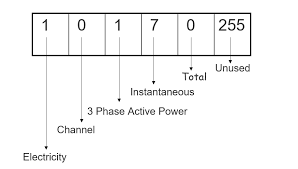
IoT Energy Meters: Revolutionizing Energy Management
In today's rapidly evolving world, energy conservation and management have become paramount. With the increasing global demand for electricity, it is crucial to find sustainable ways to monitor and control energy consumption. One of the most promising innovations in this regard is the Internet of Things (IoT) energy meter, a technological marvel that is transforming the way we measure, track, and optimize energy usage. In this 750-word text, we will explore IoT energy meters and their myriad benefits.
Understanding IoT Energy Meters
IoT energy meters are advanced monitoring devices that employ IoT technology to provide real-time data on energy consumption, both at a macro and micro level. These meters are designed to collect and transmit data about electricity usage, voltage fluctuations, and other crucial parameters. They are typically connected to a network, allowing users to access the data remotely via web-based platforms or mobile applications.
Benefits of IoT Energy Meters
-
Real-time Monitoring: One of the primary advantages of IoT energy meters is their ability to provide real-time data. Traditional meters only offer monthly or quarterly readings, making it challenging to identify energy wastage or abnormalities promptly. With IoT meters, users can monitor their energy consumption on a minute-by-minute basis, enabling them to make informed decisions instantly.
-
Energy Efficiency: IoT energy meters empower consumers to optimize their energy usage. By analyzing real-time data, users can identify energy-intensive appliances or processes and make adjustments to reduce consumption. This leads to significant energy savings and cost reductions.
-
Cost Savings: IoT energy meters help businesses and homeowners save money by reducing energy waste. They enable precise tracking of energy expenses, making it easier to budget and manage finances. By identifying peak usage times, users can take advantage of off-peak pricing and demand response programs to further reduce costs.
-
Environmental Impact: IoT energy meters contribute to sustainability efforts by promoting energy efficiency. By reducing energy consumption, we can decrease greenhouse gas emissions and combat climate change. Additionally, IoT meters support the integration of renewable energy sources, such as solar panels and wind turbines, by optimizing their usage based on real-time data.
-
Remote Accessibility: With IoT energy meters, users can access their energy data remotely through web portals or mobile apps. This accessibility is particularly valuable for property managers, businesses with multiple locations, or individuals who travel frequently. It allows them to monitor energy usage and respond to issues promptly, even when they are not on-site.
-
Predictive Maintenance: IoT energy meters can detect anomalies in energy consumption patterns, which may indicate equipment malfunctions or inefficiencies. This enables proactive maintenance, reducing downtime and repair costs. Predictive maintenance is especially beneficial for industrial and commercial users with critical machinery.
-
Customized Reporting: IoT energy meters offer the flexibility to generate customized reports and analytics. Users can tailor reports to meet specific needs, such as tracking energy usage by department in a large organization or assessing the performance of energy-saving initiatives. These reports provide actionable insights for better decision-making.
-
Compliance and Accountability: In many regions, energy regulations and standards are becoming increasingly stringent. IoT energy meters facilitate compliance with these regulations by accurately measuring and recording energy usage. They also provide transparency, enabling businesses to be accountable for their environmental footprint.
-
Grid Management: At a broader scale, IoT energy meters play a crucial role in smart grid management. They enable utilities to monitor and balance energy distribution efficiently. This leads to reduced grid congestion, fewer power outages, and enhanced grid reliability.
-
Data Integration: IoT energy meters can integrate with other IoT devices and systems, creating a comprehensive smart ecosystem. For example, they can work in tandem with smart thermostats to optimize heating and cooling systems based on occupancy and weather conditions. This synergy enhances overall energy management capabilities.
In conclusion, IoT energy meters represent a significant step forward in the quest for efficient and sustainable energy management. Their real-time monitoring, energy efficiency, cost savings, and environmental benefits make them indispensable tools for both individuals and organizations. As the world continues to prioritize energy conservation and sustainability, IoT energy meters will play a pivotal role in achieving these goals, ushering in a brighter and greener future.

